Spying shock: Shades of Big Brother as cyber-security vision comes to light
IF two Federal ministers approve, the emails, bank records and text messages of Australian citizens could be seen by digital spies. No warrants would be required and it would all be legal — and done so you’d never know.
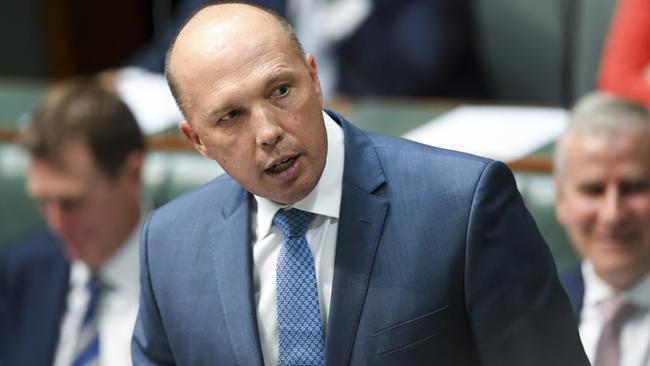
NSW
Don't miss out on the headlines from NSW. Followed categories will be added to My News.
TWO powerful government agencies are discussing radical new espionage powers that would see Australia’s cyber spy agency monitor Australian citizens for the first time.
Under the plan, emails, bank records and text messages of Australians could be secretly accessed by digital spies without a trace, provided the Defence and Home Affairs ministers approved.
The power grab is detailed in top secret letters between the heads of the Department of Home Affairs and Defence, seen by The Sunday Telegraph, which outline proposed new powers for Australia’s electronic spy agency — the Australian Signals Directorate (ASD).
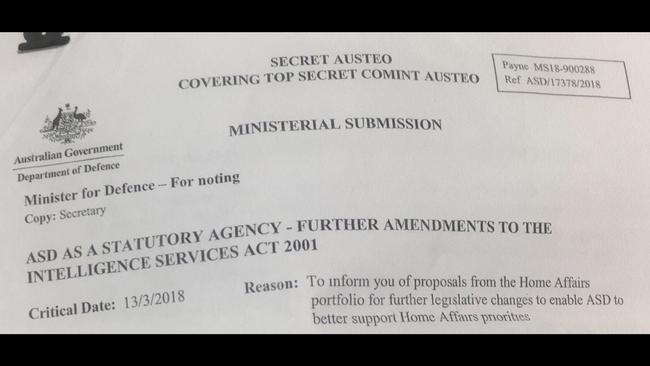
The Sunday Telegraph can reveal the Secretary of the Department of Home Affairs Mike Pezzullo first wrote to the Defence Secretary Greg Moriarty in February outlining a plan to potentially allow government hackers to “proactively disrupt and covertly remove” onshore cyber threats by “hacking into critical infrastructure”.
Under current laws the ASD — whose mission statement is “Reveal Their Secrets — Protect Our Own” — must not produce intelligence on an Australian.
Instead, the Australian Federal Police and domestic spy agency ASIO have the power to investigate Australians with a warrant and can ask ASD for technical advice if they don’t have the capabilities they need.

The Attorney-General is responsible for issuing ASIO warrants, but the agency’s operation fall under the umbrella of Home Affairs.
Under the proposal, seen by The Sunday Telegraph, Home Affairs Minister Peter Dutton and Defence Minister Marise Payne would tick off on orders allowing cyber spooks to target onshore threats without the country’s top law officer knowing.
Last month the proposal was compiled in a top secret ministerial submission signed by ASD boss Mike Burgess.
The proposal outlines scenarios where cyber spies would use offensive tactics to “counter or disrupt cyber-enabled criminals both onshore and offshore”.
“The Department of Home Affairs advises that it is briefing the Minister for Home Affairs to write to you (Ms Payne) seeking your support for a further tranche of legislative reform to enable ASD to better support a range of Home Affairs priorities.”
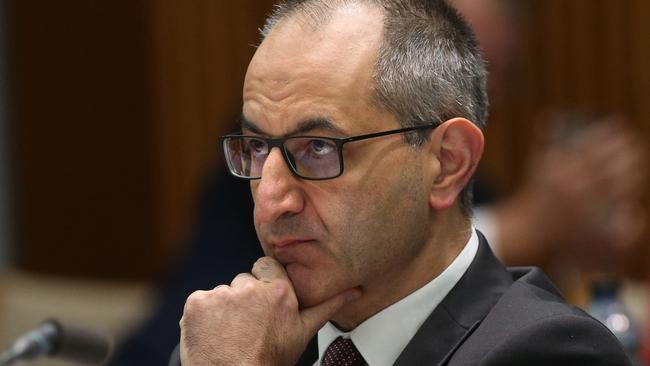
But The Sunday Telegraph understands Mr Dutton has not yet written to Minister Payne and no formal proposal for legislative amendments have been presented to the government.
In a statement, a spokesman for the Defence Minister Marise Payne said: “There has been no request to the Minister for Defence to allow ASD to counter or disrupt cyber-enabled criminals onshore.”
When The Sunday Telegraph asked an intelligence source about the proposal, the source said such reforms allow cyber spies to secretly access digital information on Australians without detection, including financial transactions, health data and phone records.
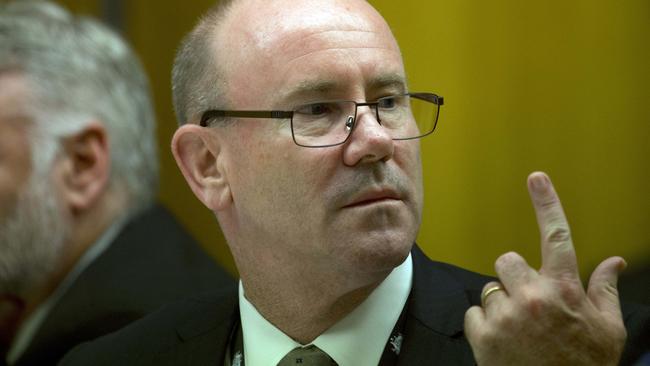
“It would give the most powerful cyber spies the power to turn on its own citizens,” the source said. The letter also details a proposal for coercive “step-in” powers, meaning the intelligence agency could force government agencies and private businesses to “comply with security measures”.
The intelligence source said ASD could compel companies and government agencies to hand over data.

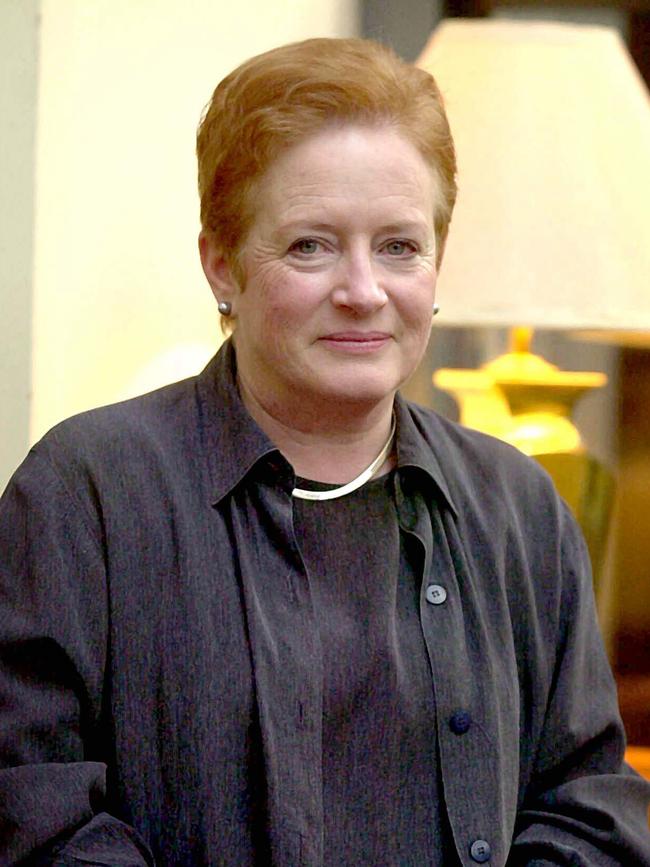
In his letter, as shown to The Sunday Telegraph, Mr Pezzullo says the move could help battle child exploitation networks and transnational criminal syndicates including terror networks “onshore and offshore ... Further legislative reform could enable the Australian Signals Directorate to have a stronger role in support of the Home Affairs portfolio and our law enforcement efforts against online, cybercrime and cyber-enabled criminal threats facing Australia,” he wrote.
“Traditional law enforcement does not have the technical capacity to fully identify, detect and disrupt systemic transnational organised crime and is ordinarily limited to dependence on foreign partners.”
A government source, speaking on condition of anonymity, said: “I am horrified. The only reason it’s not going ahead with ease is because there are good people who didn’t sign up to do this against Australian citizens.
“There is no actual national security gap this is aiming to fill other than a political power grab.”
WE DON’T WANT BIG BROTHER WATCHING
COMMENT: ANNIKA SMETHURST
ANY move to turn the government’s digital army of spies against Australians must be met with concern.
By law, the Australian Signals Directorate can gather intelligence on foreigners only — and because it isn’t targeting Australians, it is free to be rather less wholesome than we expect domestic intelligence agencies to be.

If proposed new powers go ahead, ASD cyber hackers will, for the first time, have the power to covertly access data located inside Australia to tackle onshore threats. Given how much of our lives are now online it is something we should all be worried about.
Digital spies would be able to pry into your life without you ever even knowing.
Presently only ASIO and police can snoop on Australians, and to do so they need a warrant issued by the Attorney-General. To describe that as an important safeguard is a monumental understatement.
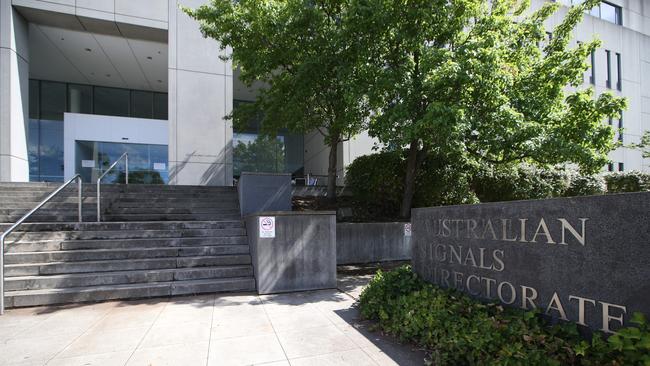
Under the latest proposal, that judicial oversight would be abolished and the Defence Minister and Home Affairs minister would tick off instead.
The proposed amendments could also see ASD granted coercive “step-in” powers that would mean the agency could force the private sector and government bodies to comply with security measures. It is an extreme step.
The head of the Intelligence watchdog Margaret Stone was right to warn the government against expanding ASD’s intelligence gathering capabilities on people and organisations inside Australia. Stone is using veiled terms to sound alarm.
If these amendments are truly needed, we must be told why. Otherwise it will no longer be an exaggeration to say Big Brother is watching.
Originally published as Spying shock: Shades of Big Brother as cyber-security vision comes to light


